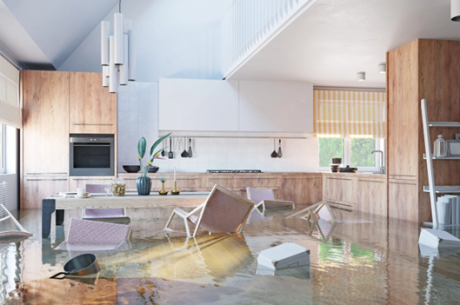Water damage can sneak up on homeowners in Florida when they least expect it. With an unpredictable climate and various weather challenges, it’s important to understand what leads to this kind of damage and know how to deal with it effectively. Water damage doesn’t discriminate; whether it’s a result of a sudden storm or a hidden plumbing issue, the effects can be both swift and severe.
Many people find themselves unprepared when water suddenly invades their living space, causing panic and confusion. It’s crucial to have a plan in place and know the steps to take when faced with this unwelcome situation. Preparing in advance can help minimize damage and streamline the recovery process, ultimately saving you time and stress.
Understanding the Causes of Water Damage
Water damage in Florida is often a result of the state’s unique climate. The frequent rainstorms and hurricane threats mean that homes are constantly at risk. While the weather plays a significant role, there are other factors at work, too. Long periods of heavy rain can overwhelm drainage systems and lead to flooding, especially in areas with high water tables. Hurricanes, with their intense winds and rainfall, can create havoc, damaging roofs and allowing water to seep in.
Plumbing problems are another common cause of water damage. Old or faulty pipes can burst or leak without warning, introducing water into places it shouldn’t be. Regular maintenance of plumbing systems can help catch these problems before they escalate. Additionally, appliances such as water heaters and washing machines can malfunction, leading to unexpected water spills.
Understanding these causes can help homeowners be more vigilant. Take note of weather warnings and ensure your plumbing systems are routinely inspected. Sometimes, the small preventive measures can make a big difference.
Immediate Steps to Take When Water Damage Occurs
Discovering water damage can be overwhelming, but acting quickly is key. Here’s a practical plan to follow:
– Stop the Water Source: If possible, find and stop the water source. This might involve shutting off the main water valve or fixing a small plumbing issue.
– Ensure Safety: Turn off electricity in the affected area to prevent electrical hazards. Never enter a flooded space where the electricity is still active.
– Remove Valuable Items: Safely relocate important belongings and furniture to a dry area to minimize damage.
– Ventilation: Open windows and doors to allow air circulation. This helps in drying the area faster and reduces the chances of mold growth.
Having this plan in hand ensures that you can respond quickly and effectively, minimizing the impact on your home.
Mitigating and Restoring Water Damage
Once you’ve taken immediate action, the next step is addressing the water damage effectively. It’s often best left to professionals who have the tools and expertise needed for thorough restoration. Here’s why professional restoration services are beneficial:
– Water Extraction: Specialists have equipment that can quickly remove standing water from your home.
– Drying and Dehumidification: They use industrial-strength fans and dehumidifiers to dry out affected areas, ensuring no moisture lingers.
– Mold Prevention: Experts can treat potentially affected surfaces to prevent mold, which sets in quickly after water damage.
– Structural Repair: They can assess any damage to the building’s structure and make necessary repairs, ensuring your home’s integrity is restored.
Using professionals means you not only address the visible damage but also protect your home from hidden issues that can surface over time. This proactive approach safeguards against additional costs and stress in the future.
Preventative Measures to Minimize Future Water Damage Risks
Once restoration is complete, consider steps to prevent similar issues in the future. Here are a few tips to help you prepare:
– Regular Maintenance: Perform routine checks on plumbing and drainage systems. Regular inspections can reveal small leaks or blockages before they become problems.
– Install Water Detection Devices: Place these sensors in key areas like the basement or near appliances. They can alert you to leaks early.
– Proper Drainage: Ensure gutters and downspouts are clear and direct water away from your home. Blockages can lead to water pooling and subsequent damage.
– Roof Inspections: Schedule periodic checks to catch any wear and tear on your roof. Small repairs can prevent water leaks during heavy rain.
Taking these precautions can go a long way in keeping your home safe and dry, especially when Florida’s climate throws its worst. A bit of foresight can save you a lot of headaches down the road.
Final Thoughts on Water Damage Preparedness for Florida Homeowners
Being prepared is your best defense against unexpected water damage. Knowing the causes and taking proactive measures can safeguard your home. It’s about easing the stress and ensuring that your living space remains a secure, dry place for you and your loved ones.
Stay informed, be ready to act quickly, and keep up with preventive maintenance. With the right plan in place, you can face any water-related surprise calmly and confidently, knowing you’ve done all you can to protect your home.
If you’re dealing with the challenges of water damage in Florida, it’s crucial to address them promptly to prevent further issues. Trust the expertise of PuroClean of Marco Island to help protect your home with their comprehensive restoration services. Their experienced team is ready to assist, ensuring your home returns to normal swiftly and effectively.




 PuroClean of Naples
PuroClean of Naples